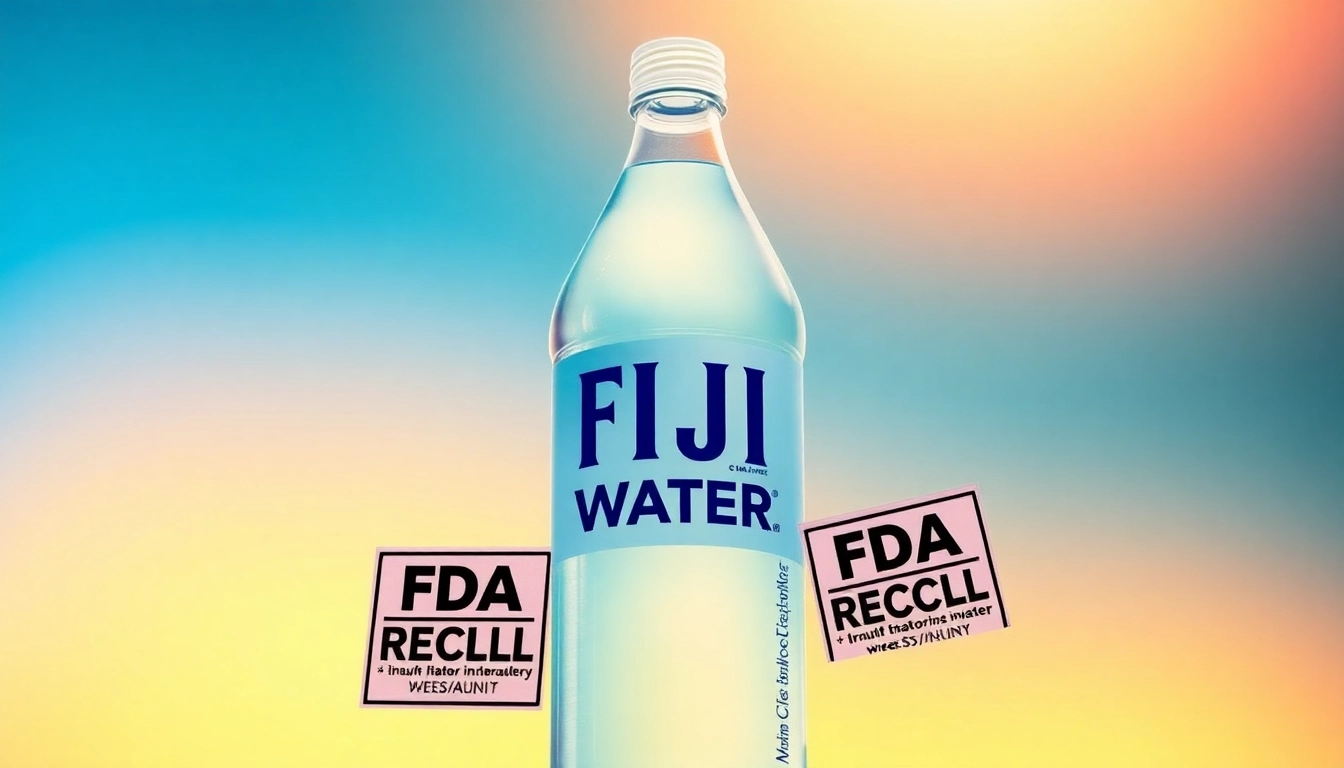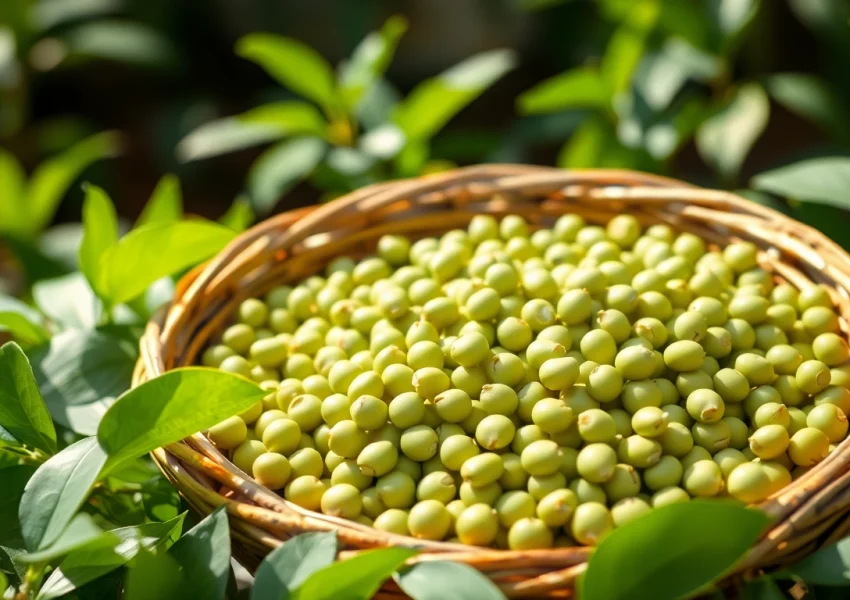Understanding FDA Recalls of Fiji Water
In recent months, the bottled water industry has faced significant scrutiny following the announcement of various recalls due to contamination issues. One of the most notable incidents involves fda recalls fiji water, where nearly 1.9 million bottles of Fiji Natural Artesian Water were recalled due to safety concerns. This article aims to unpack this incident, explore its implications for consumers, and delve into what such recalls mean in a broader context.
What Does an FDA Recall Mean for Consumers?
When the U.S. Food and Drug Administration (FDA) issues a recall, it signifies that there is a potential health risk associated with a product. In the case of Fiji Water, the recall was classified as a Class III, which indicates that the recall involves products that are not likely to cause adverse health consequences, although they may violate labeling or manufacturing laws. Nonetheless, this classification doesn’t diminish the importance of consumer vigilance.
For consumers, this recall means they must ensure that any bottled water they possess is not part of the affected batches. It also raises essential questions regarding safety regulations in the bottled water industry and how well manufacturers can ensure their products’ safety before they reach consumers.
Timeline of the Latest Fiji Water Recall
The timeline of the recent Fiji Water recall unfolded as follows:
- March 4, 2024: The FDA initiated the recall after receiving reports of elevated levels of manganese and bacterial contamination found in certain batches of Fiji Water.
- May 23, 2024: The FDA officially announced the recall, which included nearly 78,533 cases of Fiji Water, equivalent to about 1.9 million bottles.
- May 30, 2024: News outlets began to report on the recall widely, with various consumer safety organizations urging individuals to check their bottled water for affected lot numbers.
- June 7, 2024: Ongoing updates regarding the safety measures taken by the company and the FDA’s surveillance of the situation were reported.
Health Impact of Contaminated Fiji Water
While the recall was classified as Class III, the presence of contaminants such as manganese and bacteria can pose health risks, especially with long-term exposure. Manganese, while necessary in trace amounts for bodily functions, can be harmful in excessive quantities. Ingesting contaminated water can lead to neurological issues over time.
Bacterial contamination, on the other hand, can lead to a range of gastrointestinal issues, from mild discomfort to severe illness. Consumers must be aware of these potential health impacts when using bottled water, emphasizing the importance of quality assurance in the production process.
Why Was Fiji Water Recalled?
Identifying Contaminants: Manganese and Bacteria
The primary concerns leading to the recall of Fiji Water were the elevation of manganese levels and the presence of certain bacteria in the water. High levels of manganese can influence neurological development in children and have been linked to various health problems in adults, including mood disorders and cognitive issues. The specific bacteria identified were common pathogens that pose risks, particularly to immune-compromised individuals.
These findings prompted the recall to protect consumer health and ensure that such risks are mitigated through appropriate quality control measures.
Details of the FDA’s Findings
The FDA’s findings came after routine inspections and consumer reports highlighted potential contamination issues with Fiji Water. Laboratory testing revealed that batches produced around the time of the reported contamination showed suspicious levels of both manganese and several bacterial strains. The response by the company was immediate, leading to a voluntary recall aimed at preventing any health issues for consumers.
The FDA’s investigation into the situation also included examining the company’s distribution practices and verifying whether the contaminants originated during the bottling process or distribution. This investigation unveiled certain lapses in production processes, prompting the FDA to recommend stricter compliance and monitoring measures moving forward.
Company Response and Public Safety Measures
Natural Waters of Viti Limited, the company behind Fiji Water, has taken the recall very seriously. They issued a formal statement regarding the recall, expressing their commitment to consumer safety. The company also implemented several safety measures:
- Enhancements to the water testing protocols to detect contaminants earlier in the production process.
- Increased transparency through communication with regulatory bodies and the public regarding their safety practices.
- Collaboration with health experts to ensure that any potential health risks are addressed and communicated effectively to consumers.
These measures are critical in rebuilding consumer trust and ensuring that the public perceives their products as safe and reliable.
How to Check if Your Fiji Water Is Affected
Finding Batch Numbers and Recall Notices
For consumers concerned about whether their Fiji Water is part of the recall, the first step is to check the batch number. Consumers can usually find this information printed on the label or the cap of the bottle. The FDA has provided guidelines on how to identify affected products. This includes using designated online platforms or visiting retailer notices for updated information.
It’s crucial that consumers proactively check for recalls as they can happen without much public awareness, and retailers may not always inform customers.
Where to Report Concerns About Fiji Water
If consumers suspect that they have purchased contaminated Fiji Water, they should report their concerns immediately to the FDA or through the company’s customer service channels. Reporting helps safeguard public health and allows regulatory agencies to take action if necessary.
The FDA has established a straightforward reporting system for consumers, allowing anyone with concerns to submit their experiences easily through an online form.
Steps to Take If You Have Recalled Products
In the event that a consumer identifies that they have a bottle of Fiji Water that falls under the recall, they should take the following steps:
- Do not consume the water. It’s essential to avoid drinking any affected products.
- Return the product to the place of purchase. Many retailers have been instructed to accept returns or provide substitutes for recalled products.
- Document any symptoms. If any negative health effects are experienced, it’s important to document these and report them to a healthcare professional and the FDA.
- Stay informed. Keep up with updates on the recall and other safety announcements related to bottled water.
Consumer Reactions and Market Impact
Public Sentiment Surrounding Fiji Water
Public sentiment following the recall has shown a mixture of concern and caution towards Fiji Water. Many consumers expressed disappointment, particularly those who have long regarded Fiji Water as a premium bottled water option. Some consumers took to social media to voice their frustrations while others began exploring alternatives.
Consumer reviews and ratings have shifted as people reassess their trust in the brand. The need for transparency from companies and a higher commitment to safety is becoming even more apparent.
Effects on Sales and Brand Reputation
The impact on Fiji Water’s sales has been tangible. Following the announcement, some retailers reported a noticeable decline in purchases of Fiji Water as consumers pivoted to other brands perceived to offer better safety assurances.
The long-term effects on the brand’s reputation are yet to be fully seen; however, establishing a consumer trust recovery strategy will be critical for Fiji Water moving forward. Brands that exhibit accountability and commit to consumer safety can often recover from such setbacks, although it may take time.
Comparative Analysis with Other Water Brands’ Recalls
Fiji Water is not alone; several bottled water brands have faced recalls over the years. A comparative analysis reveals common contaminants, such as E. coli and elevated mineral levels, that frequently lead to similar recalls. Brands that prioritize quality control and transparency have managed to navigate such tumultuous events more effectively.
For instance, when some brands faced recalls, they implemented immediate communication strategies and public relations tactics to communicate their actions and safety protocols, which mitigated negative consumer sentiment.
Moving Forward: Ensuring Safe Drinking Water
Best Practices for Assessing Water Safety
For consumers, ensuring safe drinking water begins with understanding the source and testing of their water products. Here are some actionable best practices:
- Research brands: Prioritize brands that provide transparency regarding their water sources and testing practices.
- Check for recalls: Regularly visit the FDA’s website or other resources to stay informed about recalls.
- Read reviews: Consumer feedback can provide insights into product quality and safety.
How to Choose Bottled Water Brands Wisely
Selecting bottled water requires paying attention to various factors. The first step includes examining the bottler’s reputation and overall market conduct. Additionally, consumers should look for certifications indicating adherence to health and safety standards. Brands certified by organizations such as NSF International or the International Bottled Water Association (IBWA) typically uphold rigorous quality control measures.
Future Expectations for Fiji Water and FDA Regulations
As Fiji Water aims to recuperate from the recall, consumer expectations will be high concerning safety and transparency. Furthermore, increased regulatory scrutiny on bottled water brands may lead to more stringent policies governing water safety standards across the board.
The FDA is likely to continue monitoring products more rigorously, especially in light of recent recalls. This trend underlines the growing importance for bottlers to establish robust safety protocols and effective communication strategies that assure consumers of their commitment to health and safety.






